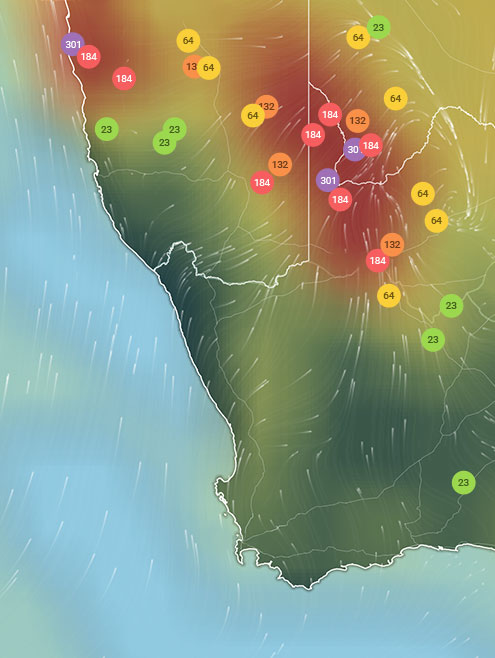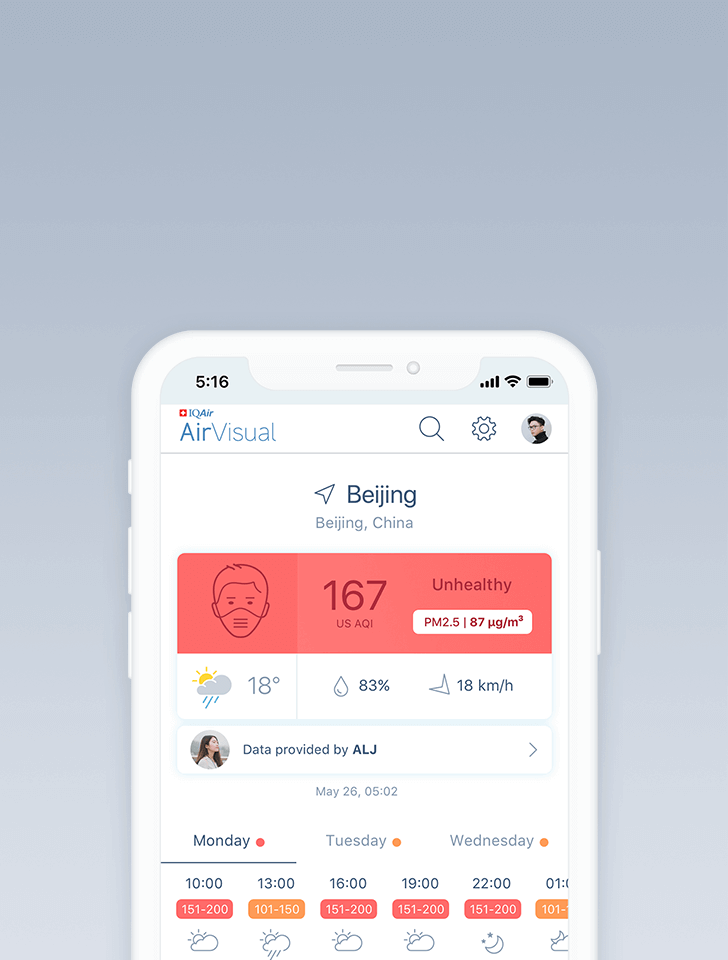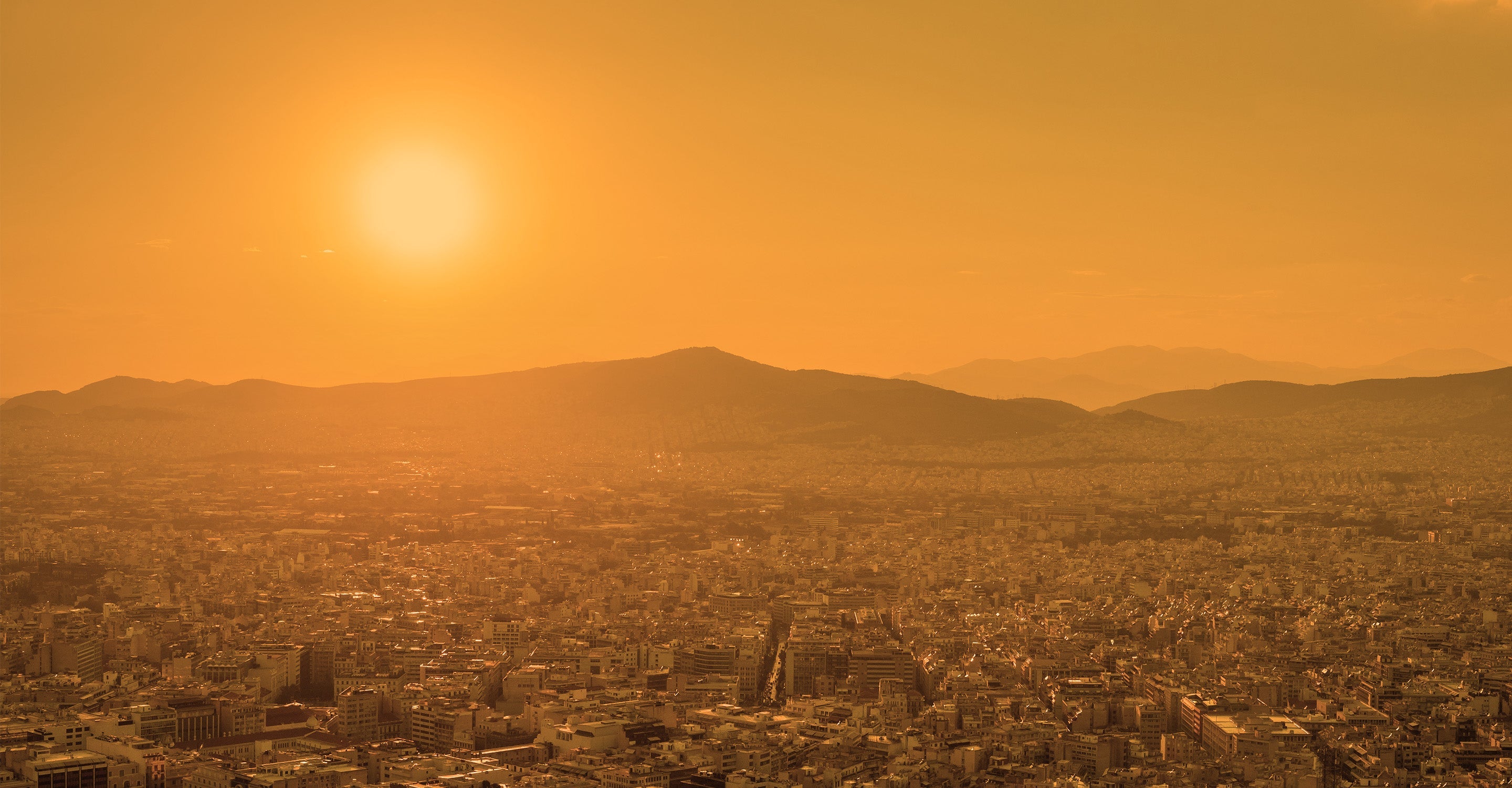Air quality in Yangquan
Air quality index (AQI) and PM2.5 air pollution in Yangquan
2.2K people follow this city

Yangquan Air Quality Map
Real-time Yangquan air pollution map
Weather
What is the current weather in Yangquan?
| Weather | Broken clouds |
| Temperature | 69.8°F |
| Humidity | 44% |
| Wind | 3.8 mp/h |
| Pressure | 29.8 Hg |
live aqi city ranking
Real-time China city ranking
| # | city | US AQI |
|---|---|---|
| 1 | Jinchang, Gansu | 1442 |
| 2 | Zhangye, Gansu | 657 |
| 3 | Bayan Nur, Inner Mongolia | 199 |
| 4 | Neijiang, Sichuan | 193 |
| 5 | Hohhot, Inner Mongolia | 184 |
| 6 | Fangshan, Beijing | 180 |
| 7 | Siping, Jilin | 178 |
| 8 | Zhangjiakou, Hebei | 174 |
| 9 | Baoding Shi, Hebei | 173 |
| 10 | Yangliuqing, Tianjin | 173 |
(local time)
SEE WORLD AQI RANKING3D animated air pollution map

live Yangquan aqi ranking
Real-time Yangquan air quality ranking
| # | station | US AQI |
|---|---|---|
| 1 | Pingtan | 157 |
| 2 | Dragon Pillar | 153 |
| 3 | Dayang Spring | 146 |
| 4 | Nanzhuang | 124 |
| 5 | city center | 124 |
| 6 | Sai yu | 117 |
(local time)
SEE WORLD AQI RANKINGUS AQI
146
live AQI index
Unhealthy for sensitive groups
Overview
What is the current air quality in Yangquan?
| Air pollution level | Air quality index | Main pollutant |
|---|---|---|
| Unhealthy for sensitive groups | 146 US AQI | PM2.5 |
| Pollutants | Concentration | |
|---|---|---|
| PM2.5 | 54µg/m³ | |
| PM10 | 120µg/m³ | |
| O3 | 25µg/m³ | |
| NO2 | 44.5µg/m³ | |
| SO2 | 11µg/m³ | |
| CO | 750µg/m³ | |
PM2.5
x10.8
PM2.5 concentration in Yangquan is currently 10.8 times the WHO annual air quality guideline value
Health Recommendations
What is the current air quality in Yangquan?
| Reduce outdoor exercise | |
| Close your windows to avoid dirty outdoor air GET A MONITOR | |
| Sensitive groups should wear a mask outdoors GET A MASK | |
| Run an air purifier GET AN AIR PURIFIER |
Forecast
Yangquan air quality index (AQI) forecast
| Day | Pollution level | Weather | Temperature | Wind |
|---|---|---|---|---|
| Wednesday, Apr 24 | Moderate 94 AQI US | 80.6° 51.8° | ||
| Thursday, Apr 25 | Moderate 94 AQI US | 86° 62.6° | ||
| Friday, Apr 26 | Unhealthy for sensitive groups 116 AQI US | 87.8° 64.4° | ||
| Today | Unhealthy for sensitive groups 146 AQI US | 75.2° 59° | ||
| Sunday, Apr 28 | Unhealthy for sensitive groups 120 AQI US | 71.6° 51.8° | ||
| Monday, Apr 29 | Unhealthy for sensitive groups 102 AQI US | 66.2° 50° | ||
| Tuesday, Apr 30 | Moderate 57 AQI US | 68° 50° | ||
| Wednesday, May 1 | Moderate 67 AQI US | 75.2° 53.6° | ||
| Thursday, May 2 | Moderate 61 AQI US | 77° 57.2° | ||
| Friday, May 3 | Moderate 72 AQI US | 73.4° 57.2° |
Interested in hourly forecast? Get the app
AIR QUALITY ANALYSIS AND STATISTICS FOR Yangquan
What is the level of air pollution in Yangquan city?
Yangquan is a prefecture-level city in the east of Shanxi province, People's Republic of China. A 2010 census estimated its population to be approximately 1.4 million people.
Towards the middle of 2021, Yangquan was experiencing a period of “Moderate” quality air with a US AQI reading of 84. This is a globally recognised system that allows comparisons to be made between different cities, even if they are in different countries they still use the same metrics. It follows the guidelines suggested by the World Health Organisation (WHO) and is calculated by measuring up to six of the main pollutants most commonly found in polluted air.
The concentrations of the six main pollutants in Yangquan were as follows: PM2.5 - 28 µg/m³, PM10 - 69.5 µg/m³, ozone (O3) - 76 µg/m³, nitrogen dioxide (NO2) - 31.5 µg/m³, sulphur dioxide (SO2) - 18.5 µg/m³ and carbon monoxide (CO) - 700 µg/m³. These figures are quoted in microns or micrograms per cubic metre.
Whilst this level is not particularly high, all levels of air pollution can be detrimental to health as everybody is prone to the effects of dirty air. Under such circumstances, the given advice would be to remain indoors as much as possible and close all doors and windows to prevent more polluted air from entering. Those people who know they are sensitive to poor air quality should avoid venturing outside until the air quality improves. The table at the top of this page should help you decide when it is OK to go outside again.
Does the level of air pollution in Yangquan remain the same throughout the year?
Air pollution can be very volatile because it is affected by so many variables therefore it can change within a very short space of time. The figures have been released by IQAir.com for 2020 so it can be seen when the best quality air was enjoyed.
With the exception of July, the warmer months from April until the end of September were the cleanest months with figures between 12.1 and 35.4 µg/m³ which could be classed as “Moderate”. July bucked the trend when its reading was 39.7 µg/m³ which is “Unhealthy for sensitive groups”. This level was experienced in March, October and December with figures of 44.9, 44.2 and 49 µg/m³, respectively. For the remaining three months of the year, November, January and February the air quality was classed as being “Unhealthy” with figures between 55.5 and 150.4 µg/m³.
Records of air quality were first kept in 2017 when the recorded figure was 63.6 µg/m³ and it can be seen to be improving year on year. In 2018 it was down to 59 µg/m³ and in 2019 it dropped again to 50.6 µg/m³. In 2020, the figures were relatively low at just 46.3 µg/m³. In nearly all other cities the 2020 figure has been much lower than previous years because of the restrictions put in place due to the COVID-19 pandemic when most private vehicle use was prohibited and certain industries were told to suspend operations until further notice. This had a big impact on air cleanliness. Time will tell whether or not it will remain at this figure or increase once more.
What is the source of air pollution in Yangquan?
According to the analysis of relevant experts, the internal cause of heavy air pollution is the emission of pollution sources, and the external cause is weather and topographic conditions. When the conditions are met, heavy pollution will inevitably occur. There are many heavy industrial outlets which all contribute to the air pollution.
Pollution source analysis shows that from the perspective of the contribution rate of various pollution sources to the emission of air pollutants, the iron and steel industry has become an important source of PM10, PM2.5 and carbon monoxide pollutant emissions, and is the second largest contributor to sulphur dioxide emissions.
The metal processing industry is the largest emission source of volatile organic compounds VOCs, and its VOC emissions account for about half the total. In addition, the smelting industry is also the main emission source of sulphur dioxide, nitrogen oxides and PM2.5.
What can be done to improve the air quality in Yangquan?
The main problems in the three cities of Jincheng, Handan, and Yangquan include: the air quality improvement target has not been completed, and many air pollution problems have been discovered during inspections.
Yangquan City has a large number of air pollution problems and slow rectification. The problem of dust pollution in the city is very prominent. The frequent occurrence of unorganised emissions by enterprises, the open-air storage of materials, the failure to douse coal as required, and the inadequate daily sprinkling measures to reduce dust are more common.
Despite tighter controls and inspections, compared with the fourth quarter of 2017, the average concentration of PM2.5 in the city in the first quarter of 2018 increased by more than 30 per cent, and the lack of resilience in tackling tough actions resulted in passive work.
How does air pollution in Yangquan affect human health?
Particulate matter is produced during the combustion of motor vehicle fuel. Diesel vehicles and two-stroke motorcycles without emission control technology tend to emit more particles. Other sources of particulate matter include: the combustion of wood, coal, petroleum and gas fuels, the combustion of coal slag, agricultural waste and municipal solid waste, the discharge of fly ash from power plants, smelting and mining activities, asbestos plants, metallurgy, ceramics and glass and cement producers and other industries.
PM2.5 are particles smaller than 3 microns in diameter that can enter the nose and throat, reach the lungs, cause breathing difficulties, and stimulate the capillaries of the lungs. It can induce respiratory disease, cause lung function defects including reduced lung function (especially in children), cause lung cancer, and increase mortality. The long-term decline in vital capacity (emphysema) in the urban population is also a major threat.
Almost half the children under five who die from acute lower respiratory infections are caused by inhalation of particulate matter due to indoor air pollution caused by household solid fuels.
Women exposed to heavy indoor smoke are three times more likely to develop chronic obstructive pulmonary disease (for example, chronic bronchitis) than women who use cleaner fuels. Among men (who already have a higher risk of chronic respiratory diseases due to higher smoking rates), exposure to indoor smoke can almost double this risk.





